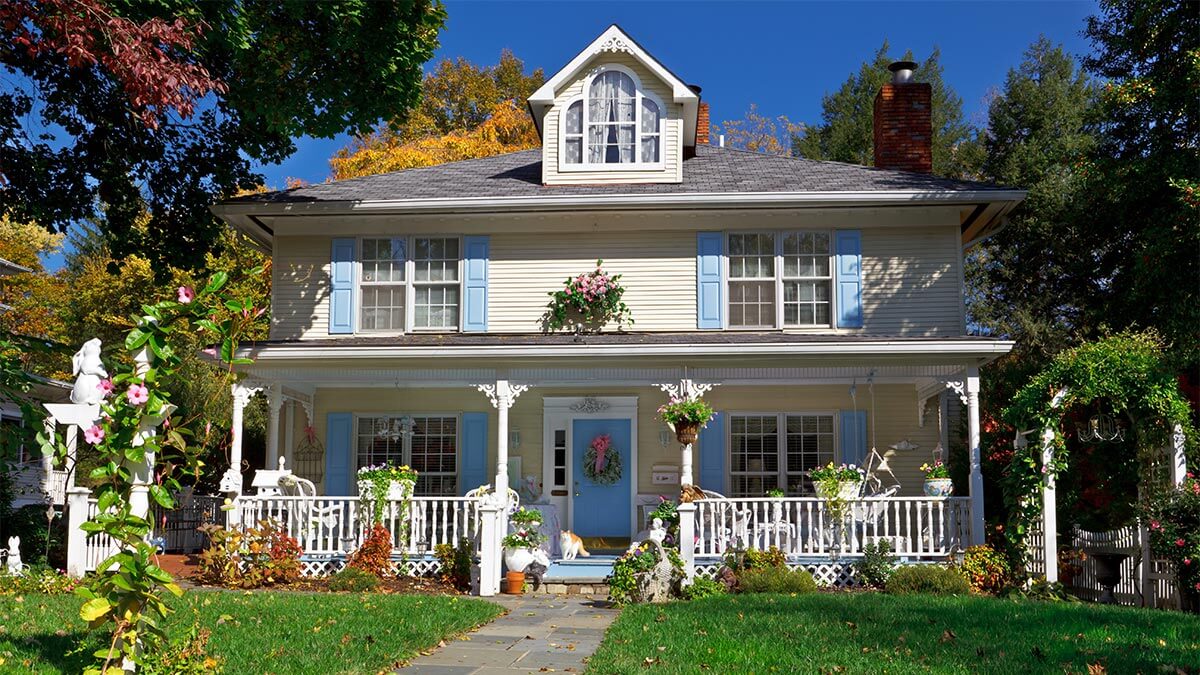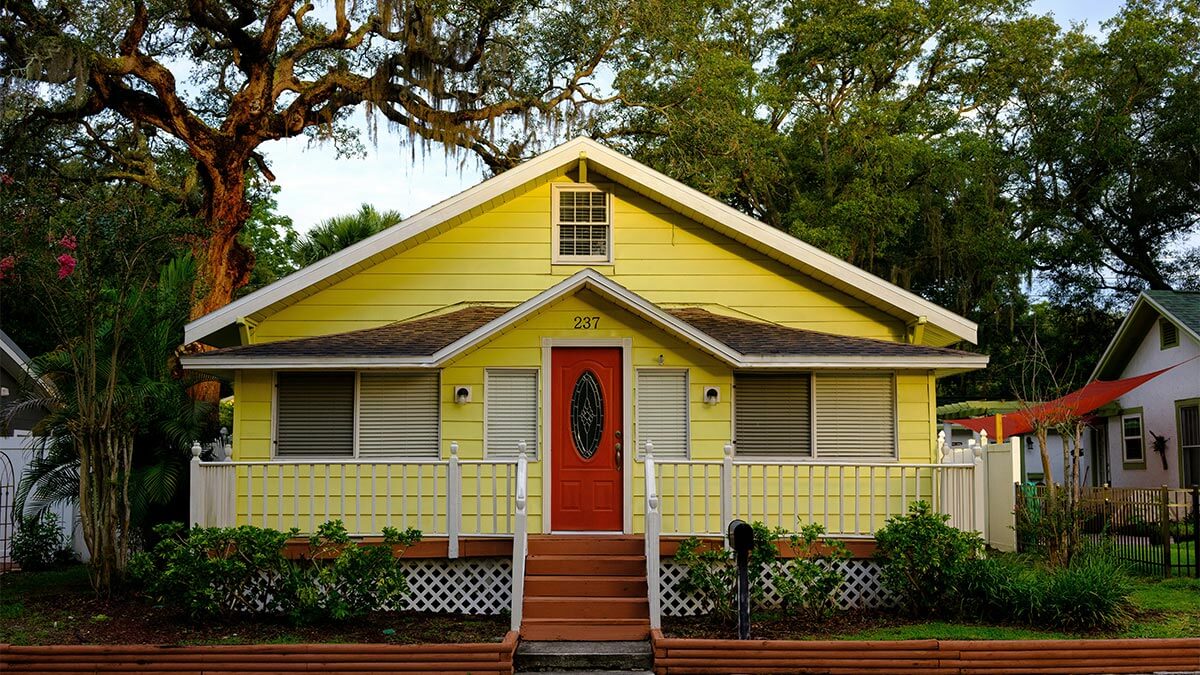Florida’s housing market is making big waves right now, and whether you’re buying or selling, you’ve probably noticed things aren’t the same as they were a year ago. Prices are shifting, mortgage rates are keeping buyers on their toes, and homes are sitting on the market longer in some areas while flying off the shelves in others.
If you’re a homeowner wondering if now’s the right time to sell, or a buyer trying to figure out if you should wait for prices to drop, you’re not alone. The real estate market is in a weird spot, and it’s got everyone asking: What’s next?
The good news? You don’t have to figure it out alone. In this article, we’re breaking down the latest trends, what’s causing prices to move, and what to expect in the coming months. Whether you’re looking to cash in on your home’s value or find the perfect place at the right price, we’ve got the info you need to make a smart move.
👉 Thinking about selling in Florida’s shifting market? iBuyer.com makes it simple, get a fast, competitive offer today!
Instant Valuation, Confidential Deals with a Certified iBuyer.com Specialist.
Sell Smart, Sell Fast, Get Sold. No Obligations.
Florida Real Estate
- Housing Market in Florida: Where We Stand Now
- Why Are Florida Home Prices Changing?
- Regional Breakdown: Where Are Home Prices Rising & Falling?
- Reilly’s Two Cents: Expert Tips for Navigating This Market
- Is It a Buyer’s or Seller’s Market in Florida?
- Investment & Market Forecast: What’s Next for Florida Real Estate?
- FAQ: Your Florida Housing Market Questions Answered
Housing Market in Florida: Where We Stand Now
Right now, Florida’s housing market is a mix of ups and downs, depending on where you look. Some areas are seeing home prices hold steady, while others are feeling the pressure of higher mortgage rates and more active listings. That means sellers aren’t getting the same sky-high offers they were a year ago, and buyers finally have a little more room to negotiate.
One big change? Inventory is rising. More homes are hitting the market, which means buyers have more choices. That’s great if you’re house hunting, but for sellers, it means pricing your home correctly is more important than ever. Overpricing in this market could leave you waiting months for an offer.
Another key trend is the sales price vs. list price gap. A year ago, many homes were selling above asking price in Florida, sometimes with bidding wars. Now, price cuts are more common, and sellers are having to adjust their expectations. But that doesn’t mean home values are crashing, it just means the market is shifting back to normal.
So, what does all this mean for you? If you’re a buyer, this might be your chance to finally snag a home without overpaying. If you’re a seller, it’s still a good time to sell, but you’ll need the right strategy to attract buyers.
Why Are Florida Home Prices Changing?
There’s no single reason why Florida home prices are shifting, it’s a mix of higher mortgage rates, changing buyer demand, and a growing number of homes for sale. A year ago, low interest rates and high demand sent prices soaring, but now, the market is cooling off.
Mortgage rates are a big factor. When interest rates were at record lows, buyers could afford bigger loans, pushing home prices higher. Now, with rates climbing, monthly payments are a lot higher, forcing many buyers to step back or lower their budgets. Less competition means sellers have to be more flexible on pricing.
Another piece of the puzzle? The real estate market runs in cycles. After years of rapid growth, Florida is seeing a natural slowdown. But unlike the 2008 crash, this isn’t a housing bubble bursting, it’s more of a market correction.
Then there’s U.S. migration trends. Florida has been a hotspot for out-of-state buyers, especially from places like New York and California. But as home prices and insurance costs rise, some people are rethinking the move. That’s creating more inventory and fewer bidding wars, which helps bring prices down.
Bottom line? Prices aren’t collapsing, but they’re adjusting. Sellers need to price competitively, and buyers who’ve been waiting on the sidelines might finally have a shot at getting a good deal.
Regional Breakdown: Where Are Home Prices Rising & Falling?
Not every part of Florida is experiencing the same market shift. Some areas are still hot with high demand, while others are seeing price drops as more homes sit unsold. Whether you’re buying or selling, knowing what’s happening in different regions can help you make the right move.
Coastal Cities (Miami, Tampa, Jacksonville) – Still in Demand
Big cities like Miami and Tampa are still seeing strong buyer interest, especially from out-of-state buyers and investors. These areas have a lot of job growth, great weather, and no state income tax, things that continue to attract people. But even in these markets, homes aren’t selling as fast as last year, and price cuts are becoming more common.
Suburban vs. Urban Pricing – More Homes, More Choices
Suburban areas, especially in Orlando, Fort Myers, and parts of Palm Beach County, are seeing a slowdown in price growth. During the pandemic, these areas exploded in popularity as people moved away from big cities. Now, as more homes hit the market, buyers finally have options, and prices are starting to level off.
Fastest-Growing Sales Price Areas
Despite the market shift, some places are still seeing rising prices, mainly because of low inventory or strong demand:
- Naples & Sarasota → Luxury home markets still going strong.
- Ocala & Lakeland → Affordable areas attracting first-time buyers.
- St. Augustine → A historic town with limited housing supply, keeping prices high.
Homeowners enjoying rising prices should also be aware of property gains tax Florida implications before cashing out their investment.
Where Prices Are Dropping
On the flip side, some areas are seeing noticeable price cuts, especially in places that had rapid price growth over the past few years:
- Cape Coral & Fort Myers → High insurance costs and storm damage concerns are cooling demand.
- Jacksonville suburbs → More homes for sale means more negotiating power for buyers.
- Tallahassee & Gainesville → Less investor interest compared to Florida’s bigger cities.
So what’s the takeaway? If you’re buying, look for areas with rising inventory where you can negotiate a deal. If you’re selling, know your local market, some cities still have strong demand, while others may require strategic pricing to attract buyers.
When evaluating Florida’s housing trends, it’s helpful to see how fast sales perform in specific cities, see sell your house fast in Pembroke Pines for a local case study.
Reilly’s Two Cents: Expert Tips for Navigating This Market
I’ve been selling homes in Florida for a long time, and if there’s one thing I’ve learned, it’s that no two markets are ever the same. I’ve worked with sellers who got multiple offers within hours, and I’ve seen homes sit for months just because they were priced too high. Right now, we’re in a market that requires strategy. Sellers who adapt are the ones who win. If you’re thinking about selling, here’s what you need to know to make sure you don’t leave money on the table, or worse, get stuck with a listing that won’t move.
Should You Sell Now or Wait?
If you’re on the fence, the first thing to ask yourself is: Do I NEED to sell, or do I WANT to sell? If you need to move, maybe for a job, downsizing, or financial reasons, then the best time to sell is always when it makes sense for you. But if you’re just testing the waters, you might want to watch how the market plays out in your area. More homes are hitting the market, which means more competition. If you list now, be prepared to price strategically and market aggressively.
How to Price Your Home Strategically
I’ve seen sellers list too high because they’re chasing last year’s prices, and I’ve seen others list too low out of fear. The key is finding that sweet spot, a price that’s competitive but still profitable. The best way to do this? Look at the comps (recent comparable sales) in your area. What did homes like yours sell for in the past 60-90 days? Not six months ago, things have changed since then. Pricing right from the start is crucial because homes that sit for too long tend to lose value in buyers’ eyes.
Staging & Marketing Tips
Buyers today have more choices, so if your home doesn’t stand out, it won’t sell. That doesn’t mean you need a full renovation, but a little effort goes a long way. Here’s what works:
✅ Declutter & depersonalize – Buyers need to picture themselves in the home, not you.
✅ Deep clean – A spotless home makes a great first impression.
✅ Curb appeal matters – A fresh coat of paint, trimmed landscaping, and a clean entryway can do wonders.
✅ Professional photos & a strong listing description – Bad photos = no showings. Hire a pro or make sure your agent knows how to market properly.
Negotiation Tips
I get it, getting a low offer can feel insulting. But in today’s market, it’s part of the game. The key is not to panic. If an offer comes in lower than expected, don’t reject it outright. Instead:
➡ Consider countering. Even a small price drop or offering closing cost help could keep the deal alive.
➡ Know your bottom line. Before you list, decide the lowest number you’d accept. That way, you’re not making emotional decisions.
➡ Stay patient but realistic. If weeks go by with no offers, it might be time to reassess the price or adjust your strategy.
At the end of the day, selling in this market is all about being flexible and informed. If you price right, market well, and negotiate smartly, you’ll still walk away with a great deal.
Is It a Buyer’s or Seller’s Market in Florida?
Right now, Florida’s housing market is somewhere in the middle, it’s not a full-on seller’s market like we saw in 2021, but it’s not completely shifted to a buyer’s market either. Instead, we’re in a balancing phase, where buyers have more negotiating power, but well-priced homes are still selling.
Months of Supply & Market Competition
One way to tell whether it’s a buyer’s or seller’s market is by looking at months of inventory, basically, how long it would take to sell all the homes currently for sale if no new ones were listed.
- Less than 3 months of inventory = Seller’s market (low supply, high demand).
- 3 to 6 months of inventory = Balanced market (even competition).
- More than 6 months of inventory = Buyer’s market (high supply, low demand).
Right now, most Florida cities are sitting around 3 to 5 months of inventory, which means we’re in that balanced zone, but leaning slightly toward buyers, especially in areas with more active listings.
Sales-to-Listing Ratios: Are Homes Selling at Asking Price?
During the peak of the market, homes were selling above asking price, often with bidding wars. That’s changed. Now, more sellers are having to drop prices or offer closing cost help to attract buyers.
- Some hot areas (like Miami and Tampa) are still getting close to asking price.
- Others, especially in suburban and inland markets, are seeing offers come in below list price.
What This Means for Buyers & Sellers
✅ For Buyers: You finally have more choices and less competition. You can take your time, compare options, and even negotiate for price reductions or seller concessions.
✅ For Sellers: You can still sell for a great price, but overpricing is risky. If your home sits too long, buyers will expect price cuts. The key is pricing right from the start and being open to negotiations.
Florida’s market isn’t as extreme as it was last year, but whether you’re buying or selling, there are still great opportunities, you just need the right strategy.
Investment & Market Forecast: What’s Next for Florida Real Estate?
Trying to predict the housing market is never easy, but if you’re thinking about buying, selling, or investing in Florida, it helps to know where things might be headed. The good news? Florida real estate is still a strong long-term investment, but the days of skyrocketing prices and bidding wars are slowing down.
Short-Term Projections
Over the next year, experts expect a more balanced market, meaning:
- Prices may continue to level off. Some areas might see small price drops, while others hold steady.
- Mortgage rates will play a huge role. If rates stay high, buyer demand could stay low, keeping prices from rising too fast.
- Sellers will have to price competitively. Homes that are well-priced and move-in ready will still sell, but overpricing could lead to longer wait times and price cuts.
Long-Term Housing Market Outlook
Florida remains one of the most desirable states to live in, thanks to:
- No state income tax
- Warm weather year-round: Florida’s climate puts it at the top of the list of the most humid states in the U.S., which can affect lifestyle and property upkeep.
- Booming job markets in tech, healthcare, and tourism
Even if the market cools temporarily, demand for housing is expected to remain strong in the long run, especially in cities like Miami, Tampa, and Orlando. Investors and retirees will always have their eyes on Florida, keeping real estate values stable over time.
Is It Still a Smart Investment?
For long-term investors, Florida is still a great place to buy, but be strategic:
✔ Look for areas where prices have dipped (opportunity for future appreciation).
✔ Buy & hold vs. flipping, short-term flips are riskier right now, but long-term rentals could do well.
✔ Watch insurance & property taxes, some areas (especially coastal cities) are seeing higher costs, which could affect profit margins.
The market may not be as crazy as 2021, but Florida real estate still has plenty of potential, if you know where to look.
Thinking about selling your home in Florida? Skip the hassle of showings and uncertain offers, get a fast, competitive cash offer with iBuyer.com today!
Compare Cash Offers from Top Home Buyers. Delivered by Your Local iBuyer Certified Specialist.
One Expert, Multiple Offers, No Obligation.
FAQ: Your Florida Housing Market Questions Answered
It depends on the area. Some cities, like Miami and Orlando, are holding steady, while others, like Cape Coral and Jacksonville, are seeing slight price drops. Overall, Florida’s market is leveling off, but prices aren’t crashing.
If you’ve been waiting for less competition and more inventory, now could be a great time to buy. You may not see huge price drops, but sellers are more open to negotiating on price and closing costs.
Rates have been higher than in previous years, but experts predict they could stabilize or slightly decrease in late 2025. The best way to get a good deal is to shop around and consider buying down your rate.
No. The 2008 crash was caused by bad lending practices and too much risky debt. Today’s market is different, buyers are more qualified, and inventory is not oversaturated. Prices may adjust, but a full-blown crash is unlikely.
Miami, Tampa, and Sarasota are still high-demand areas, with homes selling close to asking price. However, if you’re looking for better deals, check out Lakeland, Ocala, and Jacksonville suburbs, where prices are more negotiable.
Spring and early summer are typically the best times to sell, since more buyers are in the market. However, Florida’s warm climate means homes sell year-round, just be prepared to price competitively if selling in the slower fall/winter months.
Reilly Dzurick is a seasoned real estate agent at Get Land Florida, bringing over six years of industry experience to the vibrant Vero Beach market. She is known for her deep understanding of local real estate trends and her dedication to helping clients find their dream properties. Reilly’s journey in real estate is complemented by her academic background in Public Relations, Advertising, and Applied Communication from the University of North Florida. This unique combination of skills has enabled her to seamlessly blend traditional real estate practices with cutting-edge marketing strategies, ensuring her clients’ properties gain maximum visibility and sell quickly.
Reilly’s career began with a strong foundation in social media marketing and brand communications. These skills have proven invaluable in her real estate practice, allowing her to offer innovative marketing solutions that set her apart in the industry. Her exceptional ability to understand and meet clients’ needs has earned her a reputation for providing a smooth and satisfying transaction process. Reilly’s commitment to client satisfaction and her innovative approach have garnered her a loyal client base and numerous referrals, underscoring her success and dedication in the field.
Beyond her professional achievements, Reilly is passionate about the Vero Beach community. She enjoys helping newcomers discover the charm of this beautiful area and find their perfect home.
Outside of work, she loves exploring Florida’s stunning landscapes and spending quality time with her family. Reilly Dzurick’s combination of expertise, marketing savvy, and personal touch makes her a standout real estate agent in Vero Beach, Florida.




